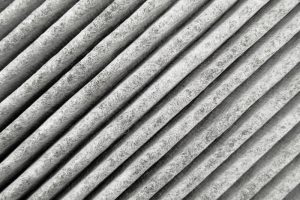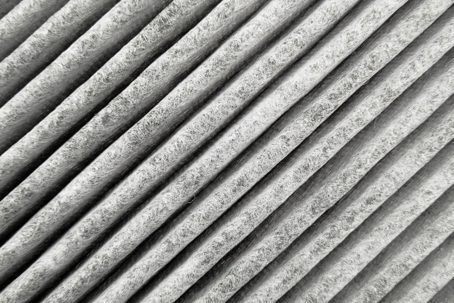What “MERV” Mean for Air Filters

MERV may look like a misspelling of the name Marv, but these four letters are vital for understanding the air filters in HVAC systems designed to trap particles from circulating through a building. Not all filters are the same: the simple panel filter on your HVAC cabinet is designed to stop large contaminants like dust and lint from getting into the system, while the HEPA filters used in hospitals are powerful enough to stop the movement of bacteria and viruses. MERV is the rating that explains the filtration power of the filter. The higher the MERV rating, the tighter the filter weave.
Minimum Efficiency Reporting Value
MERV is an acronym for Minimum Efficiency Reporting Value, which is a standard rating of the overall effectiveness of a filter. It specifically measures how fine the filtration is, i.e. how small the particles are that the filter can trap.
The MERV rating scale is from 1 to 20. In most homes and other residential buildings, MERV filters fall in the 1 to 13 range, although the filters used in HVAC system to benefit air quality are rarely lower than MERV 8. Ratings of 14 to 20 are used in health care and industrial facilities that require extremely fine filtration.
“Why Not Purchase the Highest MERV Filter I Can Afford?”
This question is the reason you need to rely on professional HVAC services in Staten Island, NY. It’s tempting to think higher MERV is automatically the better choice, no matter the purpose. But there’s a downside to a tighter filter weave, such as HEPA filters with MERV 14. A tight weave puts more resistance against airflow. The harmful particles may not get through, but the air won’t get through either! This can be disastrous for the HVAC system, since it raises pressure in the ventilation system and damages the blower fan. Plus, cooled and heated air won’t be able to reach the rooms.
To find the air filtration system for your home that will eliminate the specific contaminants you’re dealing with while still allowing the HVAC system to work as intended, you’ll need to work with indoor air quality experts.
The simplest filters, such as the plastic washable ones found in window air conditioners, are MERV 1–4. The 5–7 range is considered “better residential,” and includes the panel filters and pleated filters used in HVAC systems. These are the type you can change yourself every few months. They don’t clean your air, but they will protect the interior of your AC and heater.
The best residential filters start with MERV 8. These filters can stop particles from 1.0 to 3.0 microns in size. In many homes, this is sufficient for handling most typical contaminants, from dust to auto emissions and lead dust. Going above MERV 14 puts the filter in the commercial category, and most residential HVAC systems can’t handle them.
You probably have many other questions you want answered about the best air filtration and purification for your home. Call our experts and we’ll be glad to answer them and schedule filter installation.
Serving Staten Island’s Heating and A/C needs since 1955—Bob Mims Heating & Air Conditioning. Schedule air filter service with us.

